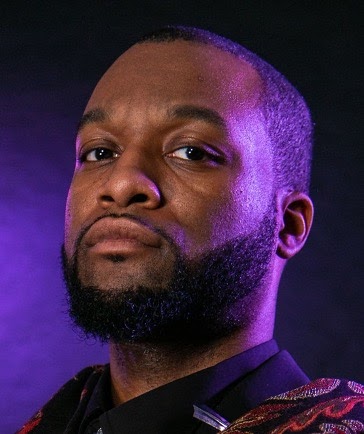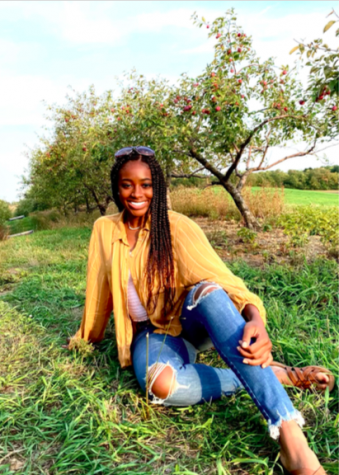CSDI Hosts Black History Month Speaker: Too Black

Poet and author, Too Black, spoke with John Carroll’s Black Students in Action organization.
Feb 17, 2022
On Monday, Feb. 7, Too Black, performed at John Carroll University which initiated Black History Month at the University.
According to his biography,“Too Black” is a poet, traveling and teaching artists; he is an author fusing historical content, current events, creative practice, and interpersonal interaction on international stages.”
Too Black has performed at numerous different events and venues including the historic Nuyorican Poets Café in New York City, Princeton University and Johannesburg Theater in South Africa.
Growing up in Muncie, Indiana, Too Black started writing poetry, surprisingly enough, in high school health class. Initially, he struggled with the rhyme and compositions of his writing in English classes but then, six months later, something switched and he started writing with ease all the time. He never expected poetry to become a career. However,one poem that he wrote in college at Ball State University ignited his passion for the art.
The first poem he performed channeled his anger from his experiences of being a pizza delivery driver and other frustrations in his life as a young college student. During that first performance, he was expecting to be booed off stage but the audience loved it.
“People started laughing, they thought it was funny and I got a standing ovation,” Too Black continued. “So, from there, I was like this might actually work and I just kept writing.”
As Too Black continued writing, he didn’t allow things such as writer’s block to halt his creativity, instead accepting it as part of the process. Too Black told The Carroll News that he doesn’t necessarily believe in writer’s block.
“I think you just go through cycles and sometimes you are going to be a little more creative than you are on other days, but it’s not a block,” he said. “Part of your writing process is the moments where you don’t have the words.”
During his college years, he came to the realization that, as a Black man in America, there will always be alternative narratives about Black people. Too Black explained that it should not be the burden of one generation to break the fabricated stereotypes about Black people in this country because those stereotypes have already been broken.
“It becomes a distraction; you’re always trying to prove something you’re not,” Too Black continued, “That’s not something we have to prove, we are already worthy, and we matter whether they [the oppressors] acknowledge it or not.”
Now, in his career, he combines critical analysis along with biting sarcasm that portrays Black culture and the Black experience in America. Too Black is also the host of the Black Myths Podcast which is described on his website as “a podcast debunking the BS said about Black people.” He is also the producer for The Last Dope Intellectual which is an “unapologetically radical Black web show hosted by Dr. Charisse Burden-Stelly and Dr. Layla Brown.”
Despite his critics, Too Black has continued to use his platform for a voice of truth and as a counteraction to oppression. During his discussion with John Carroll’s Black Students in Action organization he said “ultimately you want to have the power to be able to address that [oppression], but not changing people’s hearts. Some people’s hearts will change, and some people will see the truth for what it is and be like you know what, I can do better. But that’s their decision and not a decision you can make for them.”
Looking ahead to the future, Too Black says that he will continue to trust the process and set no limits for his success. In the near future however, he hopes to publish a book and to continue touring and performing in other countries to expand his platform.
“I tend to live day to day, but not in the sense that I don’t have goals,” Too Black stated. “Like I said earlier, we’re part of a process, so I’m more so giving myself up to that process and not determining where I might end up.”












